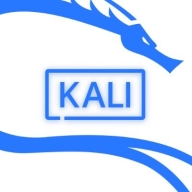

Rocky Linux and Kali Linux serve different purposes within the Linux ecosystem. Rocky Linux is valued for its user-friendliness, stable performance, and enterprise-grade support, whereas Kali Linux stands out for its specialized security tools and penetration testing capabilities.
Features: Rocky Linux users value its compatibility with enterprise applications, robust system reliability, and versatile use. Kali Linux users favor its extensive toolkit for security professionals, pre-installed penetration testing tools, and its focused functionality in cybersecurity.
Room for Improvement: Rocky Linux can improve its update process, cloud integration, and adaptability to modern workflows. Kali Linux can enhance its user-friendliness, performance in non-security tasks, and expand its versatility beyond security-centric functions.
Ease of Deployment and Customer Service: Rocky Linux has a straightforward deployment process and responsive customer service, making it more accessible for enterprises with less technical staff. Kali Linux's deployment requires more technical expertise and is ideal for environments with dedicated security teams.
Pricing and ROI: Rocky Linux offers cost-effective solutions with significant ROI for large-scale enterprise deployments. Kali Linux, while free, provides exceptional value in professional penetration testing environments, albeit without traditional ROI metrics.


Kali Linux is widely used by organizations for penetration testing, vulnerability assessments, web application security, network audits, ethical hacking, and open-source intelligence, providing extensive free features.
Organizations run Kali Linux in virtualized environments alongside other operating systems, employing tools for automated scans, malware identification, infrastructure testing, and application development or hosting. These users benefit from lower maintenance requirements and a smaller footprint. The toolset includes Nmap, SQLMap, Metasploit, and Hydra, ensuring effective security assessments. Its high scalability, performance, user-friendly interface, and extensive documentation enhance the platform's usability. Known for stability, flexibility, and virus resistance, Kali Linux supports web security, troubleshooting, and configuration tasks comprehensively.
What are the most important features of Kali Linux?Kali Linux can support industries in improving security through stable and flexible environments that resist viruses and provide extensive documentation. Users employ it for web security, troubleshooting, and configuring capabilities. Necessary improvements include automation, user-friendliness, and integrating AI and blockchain. Enhancements in security features, faster installations, and better learning tools are also essential. Machine learning integration and non-enterprise user functionalities can address current limitations.
Rocky Linux is a robust and secure enterprise-grade operating system designed as a drop-in replacement for CentOS. Its primary use case is to provide a stable and reliable platform for organizations to run their critical workloads and applications.
We monitor all Operating Systems (OS) for Business reviews to prevent fraudulent reviews and keep review quality high. We do not post reviews by company employees or direct competitors. We validate each review for authenticity via cross-reference with LinkedIn, and personal follow-up with the reviewer when necessary.